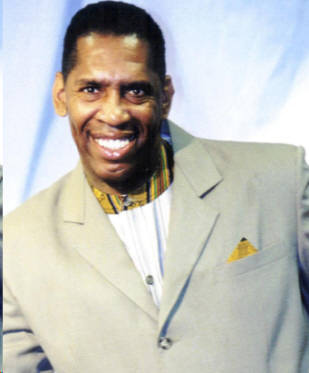This lecture is one that on the front end we want to deal with the policy of Nichiren Shu. Since Mr. Shaka Khalphani is concerned about Houston , Texas and the meetings at his home being centralized and mandated by “Houston, Texas on the front end we seek a written Nichiren Shu Policy regarding our organizing a Nichiren Shu African American cultural dominate Sangha in Memphis, Tennessee.
We are clear that the “Sangha is Cultural” and not racist. Let us make the distinction. The history of America is clear in its practice of racial discrimination. When America was founded on July 4, 1776 African Americans were considered only 3/5 human. It was not until America made the 13th and 14th amendments to the Constitution that African Americans were free from Slavery and granted citizenship. The Thirteenth Amendment to the United States Constitution officially abolished and continues to prohibit slavery to this day.

The Fourteenth Amendment to the United States Constitution declared that all persons born or naturalized in the United States are American citizens including African Americans. The Fifteenth Amendment to the United States Constitution prohibits each government in the United States from denying a citizen the right to vote based on that citizen's race, color, or previous condition of servitude
It is a ludicrous argument to compare naming all White groups to all Black groups. America has a history of Discrimination and Jim Crow Laws that mandated Whites only. "Whites" only signs historically means "Racial Discrimination." The name "Black Historically implies Culture." One example is Black Entertainment Television, Black movies or the Black Church. The Black Church and the White Church is a different meaning, than the Black Church.
The word Memphis Proud Black Buddhist denotes "culture and not race." This term simply means that we infuse African Culture and history into our Buddhist faith. The name "Memphis Proud Black Buddhist" has little to do with Race and all to do with "Culture."
We Memphis Proud Black Buddhist Sangha seeks a written policy from Nichiren shu. In my personal case we want to know their policy regarding issuing of the Gohonzon. In my personal case I have been a Nichiren Buddhist for 40 years. It seems to me that practicing Nichiren Shu formalities are not only easy to learn the formalities are refreshing. We clearly understand the value of the Gohonzon. In fact when I accepted the Gohonzon from Nichiren Shoshu we vowed to protect the Gohonzon throughout our life. We hold this vow to this day.
We at the "Proud Black Buddhist Website "are investigating moving our faith and practice from Nichiren Shoshu to Nichiren Shu. We have organized the "Memphis Proud Black Buddhist" group in Memphis, Tennessee. We have accepted Mr. Shaka Khalphani to teach us the Nichiren Shu formalities since his home is an extension of the Sangha in Houston.
We reserve the right to organize specifically a "Proud Black Buddhist" Sangha in Memphis whereas we delineate our purpose and mission. In Memphis, Tennessee we have always had African American cultural orientated Sanghas. It was in 2003 that Rev. Murata specifically moved the African American Buddhist meetings to a "Japanese Template." Such an act we call racist and Japanese Ethnocentrisim.
We want no parts of Japanese Ethnocentrism. Religion is a choice and if a religion is to become a part of the Memphis community, Japanese socialization of such a religion and its practices should not be "Centralized." Mr. Shaka Khalphani never mention the word "Centralization" of his Sangha in Memphis. In my personal life I was not Centralized in SGI or Nichiren Shoshu. I am not about to be Centralized in Nichiren Shu. Nichiren Shoshu Priest Shina Iwaki asked me to leave "Culture out of Buddhism." I showed Rev. Iwaki the door. My friend Shaka never used the word "Centralization." Shaka used "Buzz words" like "Confusion" and "Separate." What Shaka indicated by "inference" was "Centralization."